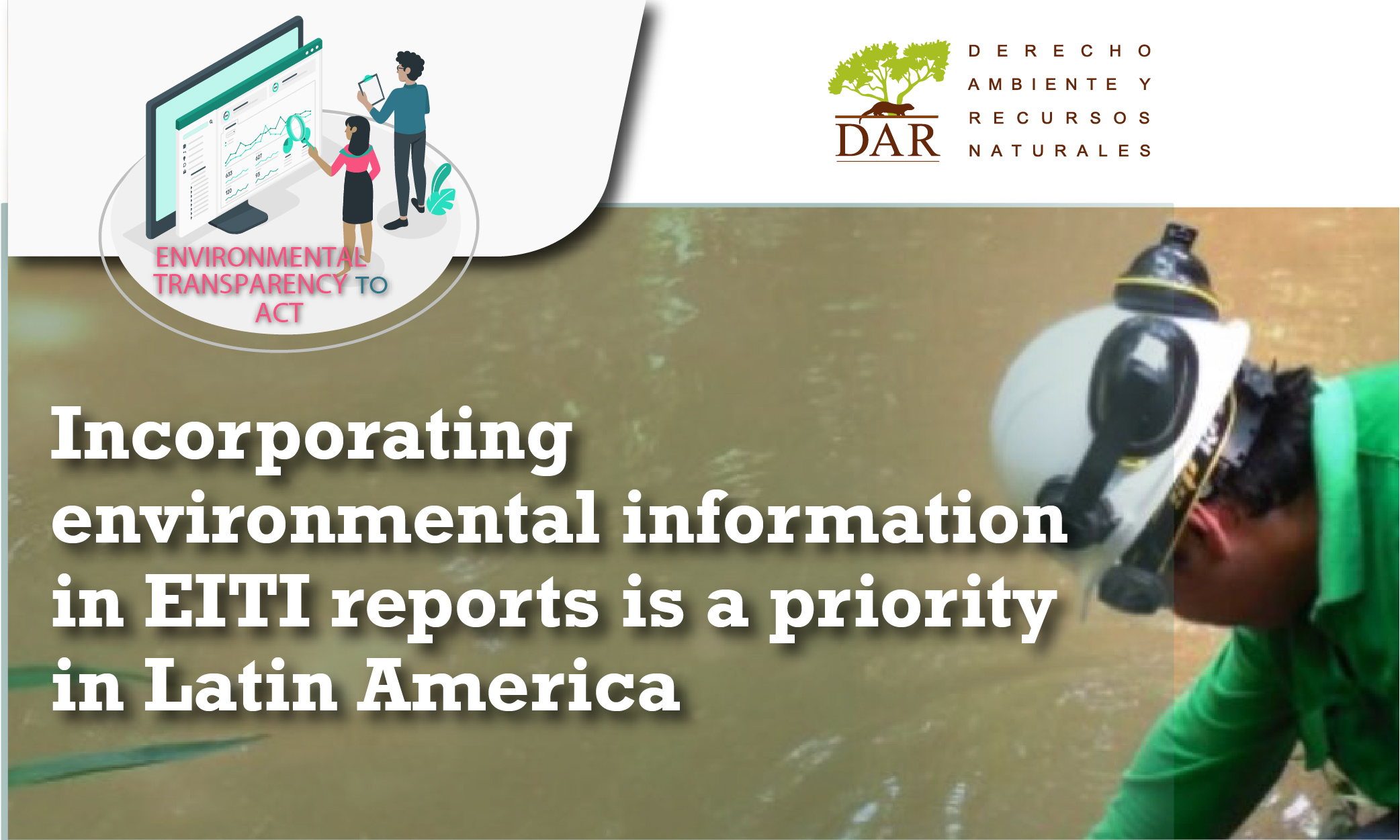Lima, April 7, 2022.- Last Thursday, March 31, representatives of the International Secretariat of the Extractive Industries Transparency Initiative (EITI) and EITI civil society representatives in Peru, Colombia, Ecuador, Mexico and Guyana met in the webinar “Balance of the transparency of extractive activities in Latin America. Status of the EITI Initiative”.
During the event, Francisco Paris, director of the International Secretariat of the EITI Initiative in Latin American and Caribbean, referred to the importance of disseminating
information on the real owners of extractive companies (beneficial owners) and gender information within the framework of the initiative. Regarding the reports on transparency in extractive industries produced by the countries within the framework of the Initiative, he specified that these must be published on time, reducing the gaps between the years reported and its publication.
This is because Peru, like other countries in Latin America, has not yet published the VIII National Report on Transparency in the Extractive Sector, corresponding to fiscal years 2019-2020. However, he recognized that the country continues to be a good example of initiatives for the continuous improvement of this process, by building a virtual platform for automatic data collection that facilitates the systematization of information for reports, soon to be implemented. In fact, he announced that the Secretariat will promote similar platforms this year in Ecuador, Trinidad and Tobago, Argentina, the Dominican Republic and Guatemala.
Likewise, he said that Latin America has been an area where incorporating environmental information in the EITI reports has been a priority, and where the challenge now is to go beyond the disclosure of environmental regulations and make environmental transparency more constant, and incorporate more specific information into the EITI reports. For example, in Perú it has promoted the disclosure of the payments extractives industries make to OEFA (agency for environmental assessment and control in Peru) and the information on the use of water in the sector.
Vanessa Cueto, vice president of DAR and representative of civil society in the EITI National Committee in Peru, highlighted the progress of the promotion of subnacional committees,
in the context of the recent declaration of regional interest to establish an EITI Committee in Cajamarca, a region with significant presence of mining activity. In addition, she raised the challenge of making them sustainable, of getting information to local communities with an intercultural character; and to grant greater protection to environmental defenders.
«It is important that the Peruvian Government fulfills the commitments assumed within the framework of the initiative, such as the publication of the VIII National EITI Report and five Subnational EITI Reports» said Cueto.
Steps to advance in transparency
Yessica Prieto, from Crudo Transparent, from Colombia, proposed building trust between the State, communities and companies for better governance of the sector as a way to strengthen transparency, reinforce the horizontality between the actors, implement effective citizen participation mechanisms around extractive industries, and decentralize the initiative, so that it reaches local people more directly.
On the other hand, Mauricio Alarcón, from Fundación Ciudadanía y Desarrollo, mentioned that in Ecuador it is vital to update the law about transparency, which is about to turn 18 years, so that it incorporates digital aspects and is in accordance with the standards of the initiative. Likewise, he mentioned the challenge of strengthening the capacities to “evangelize about the EITI”, so that the group that participates in the initiative grows.
Vanda Radzik, from Policy Forum Guyana, stressed that it is necessary to change the legislation in that country, since it allows confidentiality restrictions, which limits compliance with the standard, and to incorporate independent observers in the processes of granting contracts. Likewise, she considers that the gender approach must be incorporated into the EITI initiative, making visible the differentiated impacts of extractive industries on indigenous women.
Likewise, Óscar Pineda, from PODER, highlighted from the Mexican experience the need to guarantee the sustainability of the processes beyond the changes in the political landscape and to ensure the financing of the initiative’s actions.
Finally, César Gamboa, executive director of DAR, highlighted that the EITI initiative needs to be renewed in the framework of its 20 years (during 2023), evaluate incorporate and strengthen new issues such as prior consultation, energy transition and environmental transparency; challenge to which, he pointed out, the private sector must join, given that transparency will ultimately result in more sustainable investments in the long term.


